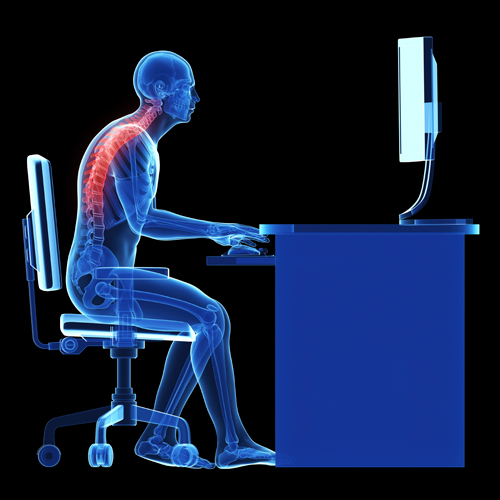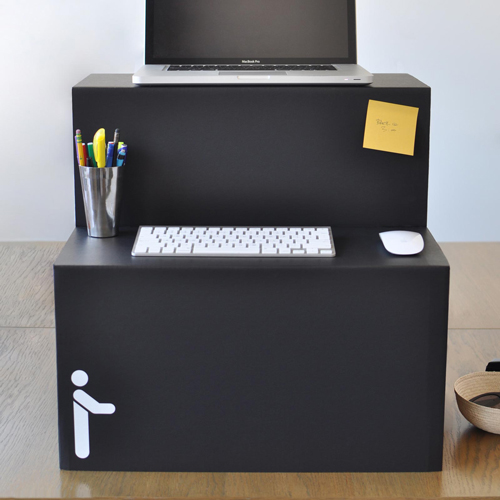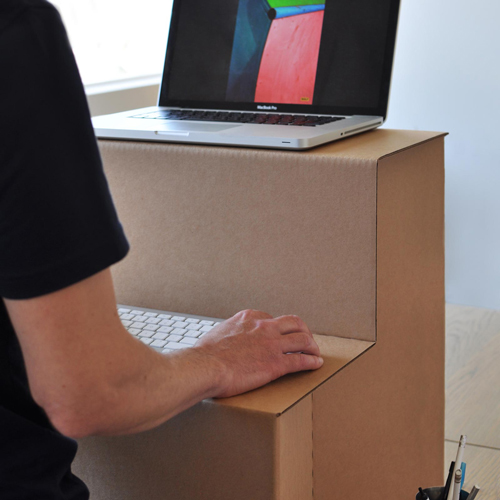As you may have expected, the phrase ‘sitting is the new smoking’ has been coined to give rise to the many health concerns that come about for desk job workers who spend the majority of their day sitting in front of a computer screen.
 The evolution of technology has been great for efficiency but quite the opposite for our bodies. Obesity rates in the U.S. are known to be high due to a number of contributing factors; sitting all day being a big one. But can it really be as bad for the body as smoking?
The evolution of technology has been great for efficiency but quite the opposite for our bodies. Obesity rates in the U.S. are known to be high due to a number of contributing factors; sitting all day being a big one. But can it really be as bad for the body as smoking?
“Sitting in my opinion is not as bad as smoking for the body, but sitting all day has been linked to certain increases in rates of cancer, heart disease, type 2 diabetes and obesity.” says UCLA physical therapist Juliana Plank.
Having studied movement in the human body for nearly her whole life as a former dancer and now as practicing physical therapist, Plank knows how much the body craves movement and how much it can suffer without it.
“A prospective study with a sample of more than 220,000 people found that people who sit for more than 4 hours per day have increased risk of mortality” she continued, “Another study found that increases in sitting caused shorter life expectancy.”
With many of our current lifestyles, sitting for under four hours per day is extremely hard to avoid. But, the human body, with over 360 joints and about 700 skeletal muscles, is built for constant motion and only brief periods of sitting for relaxation and rejuvenation.
Longer periods of sitting lead to a lack of blood flow in the body, decreased metabolism, and a decreased amount of oxygen to the brain, leaving concentration spread thin. Plank recommends taking 15-minute walks during the day, practicing “active sitting” on a yoga ball, or going with a the standing desk option.

Standing desks have been gaining popularity, but can be expensive additions to an office. So, entrepreneur Ryan Holmes recently introduced Oristand, the $25 collapsable standing desk, to help beat the problem.
“Many companies want to provide stand up desks as an option to enhance the work environment and promote the overall health and well-being of employees, however cost is a big barrier” Holmes told Connect with Life, “The investment is simply not feasible for many small-to-medium sized businesses. We wanted to create a product that would solve this problem for both companies and employees.”
Oristand is 100-percent recyclable and can collapse down to one inch for easy storage. Its light weight makes it practical to carry from home to the office.
“I’ve personally found great benefits from having the flexibility to stand or sit while working. Back problems from multiple sports injuries make it difficult for me to sit for long period,” Holmes continued. “I don’t believe a proper stand up desk should be a luxury; our intention with Oristand is to make it accessible to anyone wanting a flexible work station.”
Outside of doing more standing, walking, and active sitting while at work, it’s still incredibly important to maintain an active lifestyle outside of the office. The activity recommendations provided by The American Heart Association—which vary depending on each individual’s wants and needs—require:
 at least 30 minutes of moderate intensity aerobic exercise five days a week, or
at least 30 minutes of moderate intensity aerobic exercise five days a week, or- at least 25 minutes of high intensity aerobic exercise three days a week; and
- an additional moderate to high intensity muscle strengthening activity at least two days a week.
While it may seem difficult to fit in the proper amount of exercise in our culture of over-working, Plank insists that our health should remain our priority.
“If you choose to ignore your body, then what’s the trade off? And, is it really worth it?” Plank says, “Whether it’s more money or more work, are you really getting something that’s better than your health? Probably not. You only have one body.”
A body which requires constant maintenance to keep healthy and happy. Plank also reminds us how mindfulness towards the body is something to be astonished by and always something to continue learning about.
“It’s also just really fun to live in a human body and understand its movements” Plank says, “You’ll have more control on a daily basis on how to take care of your body, and if something is wrong then you’ll have the immediate understanding of how to handle that with less stress.”





